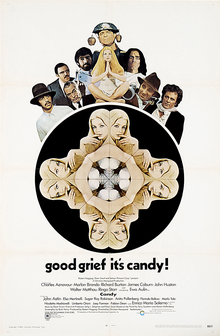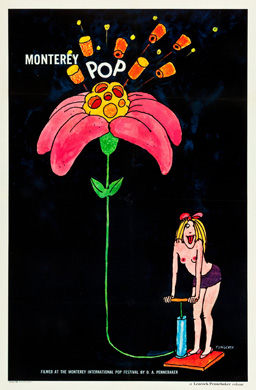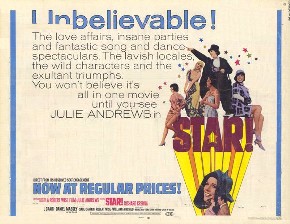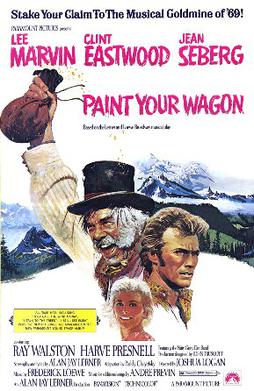
Dont Look Back is a 1967 American documentary film directed by D. A. Pennebaker that covers Bob Dylan's 1965 concert tour in England.

Nachem Malech Mailer, known by his pen name Norman Kingsley Mailer, was an American novelist, journalist, playwright, and filmmaker. In a career spanning more than six decades, Mailer had 11 best-selling books, at least one in each of the seven decades after World War II.

Donn Alan Pennebaker was an American documentary filmmaker and one of the pioneers of direct cinema. Performing arts and politics were his primary subjects. In 2013, the Academy of Motion Picture Arts and Sciences recognized his body of work with an Academy Honorary Award. Pennebaker was called by The Independent as "arguably the pre-eminent chronicler of Sixties counterculture".

The New Hollywood, Hollywood Renaissance, American New Wave, or New American Cinema, was a movement in American film history from the mid-1960s to the early 1980s, when a new generation of filmmakers came to prominence. They influenced the types of film produced, their production and marketing, and the way major studios approached filmmaking. In New Hollywood films, the film director, rather than the studio, took on a key authorial role.

Candy is a 1968 sex farce film directed by Christian Marquand from a screenplay by Buck Henry, based on the 1958 novel of the same title by Terry Southern and Mason Hoffenberg, itself based on Voltaire's 1759 novel Candide. The film satirizes pornographic stories through the adventures of its naive heroine, Candy, played by Ewa Aulin. It stars Charles Aznavour, Marlon Brando, Richard Burton, James Coburn, John Huston, Walter Matthau, and Ringo Starr. Popular figures such as Sugar Ray Robinson, Anita Pallenberg, Florinda Bolkan, Marilù Tolo, Nicoletta Machiavelli, Umberto Orsini, and Enrico Maria Salerno also appear in cameo roles.

Speedway is a 1968 American musical action film starring Elvis Presley as a racecar driver and Nancy Sinatra as his romantic interest.
Renata Adler is an American author, journalist, and film critic. Adler was a staff writer-reporter for The New Yorker for over thirty years and the chief film critic for The New York Times from 1968 to 1969. She has also published several fiction and non-fiction books, and has been awarded the O. Henry Prize, a Guggenheim Fellowship, and the PEN/Hemingway Award.

Monterey Pop is a 1968 American concert film by D. A. Pennebaker that documents the Monterey International Pop Festival of 1967. Among Pennebaker's several camera operators were fellow documentarians Richard Leacock and Albert Maysles. The painter Brice Marden has an "assistant camera" credit. Titles for the film were by the illustrator Tomi Ungerer. Featured performers include Big Brother and the Holding Company with Janis Joplin, Jefferson Airplane, Hugh Masekela, Otis Redding, Ravi Shankar, the Mamas & the Papas, the Who and the Jimi Hendrix Experience, whose namesake set his guitar on fire, broke it on the stage, then threw the neck of his guitar in the crowd at the end of "Wild Thing".

The One and Only, Genuine, Original Family Band is a 1968 American comedy musical western film from Walt Disney Productions. Distributed by Buena Vista Distribution, the film is based on a biography by Laura Bower Van Nuys, directed by Michael O'Herlihy, with original music and lyrics by the Sherman Brothers. Set against the backdrop of the 1888 presidential election, the film portrays the musically talented Bower family, American pioneers who settle in the Dakota Territory. The film stars Walter Brennan, Buddy Ebsen, Lesley Ann Warren, John Davidson, and marks the film debut of Goldie Hawn.

Maidstone is a 1970 American independent drama film written, produced and directed by Norman Mailer. It stars Mailer, Rip Torn and Ultra Violet. The film concerns famous film director Norman Kingsley, who runs for president while a group of friends, relatives, employees and lobbyists gather to discuss possible assassination plots against him. While producing his latest film about a brothel, Kingsley's brother Raoul continues to cling to him for his money.

American Gangster is a 2007 American biographical crime film directed and produced by Ridley Scott and written by Steven Zaillian. The film is loosely based on the criminal career of Frank Lucas, a gangster from La Grange, North Carolina who smuggled heroin into the United States on American service planes returning from the Vietnam War, before being detained by a task force led by Newark Detective Richie Roberts. The film stars Denzel Washington and Russell Crowe, with co-stars Ted Levine, John Ortiz, Josh Brolin, Chiwetel Ejiofor, Ruby Dee, Lymari Nadal and Cuba Gooding Jr.

Ziggy Stardust and the Spiders from Mars is a 1979 British documentary/concert film by D. A. Pennebaker. It features English singer-songwriter David Bowie and his backing group the Spiders from Mars performing at the Hammersmith Odeon in London on 3 July 1973, the final date of his Ziggy Stardust Tour. At this show, Bowie made the sudden surprise announcement that the show would be "the last show that we'll ever do", later understood to mean that he was retiring his Ziggy Stardust persona.

Star! is a 1968 American biographical-musical film directed by Robert Wise and starring Julie Andrews. The screenplay by William Fairchild is based on the life and career of British performer Gertrude Lawrence.

Finian's Rainbow is a 1968 American musical fantasy film directed by Francis Ford Coppola and adapted by E. Y. Harburg and Fred Saidy from the 1947 stage musical of the same name. It stars Fred Astaire, Petula Clark, and Tommy Steele. The plot follows an Irishman and his daughter, who steal a leprechaun's magic pot of gold and emigrate to the American South, where they become involved in a dispute between rural landowners and a greedy, racist U.S. senator.

Paint Your Wagon is a 1969 American Western musical film starring Lee Marvin, Clint Eastwood, and Jean Seberg. The film was adapted by Paddy Chayefsky from the 1951 musical Paint Your Wagon by Lerner and Loewe. It is set in a mining camp in Gold Rush-era California. It was directed by Joshua Logan.

Chris Hegedus is an American documentary filmmaker. She and her husband, filmmaker D. A. Pennebaker, founded the company Pennebaker Hegedus Films.

Western Pacific Agent is a 1950 Sigmund Neufeld Productions crime drama directed by Sam Newfield and starring Kent Taylor, Sheila Ryan, and Mickey Knox. The picture was written by Fred Myton based on a story by Milton Raison. It was released in West Germany as Jack der Killer.
Town Bloody Hall is a 1979 documentary film of a panel debate between feminist advocates and activist Norman Mailer. Filmed on April 30, 1971, in The Town Hall in New York City. Town Bloody Hall features a panel of feminist advocates for the women's liberation movement and Norman Mailer, author of The Prisoner of Sex (1971). Chris Hegedus and D. A. Pennebaker produced the film, which stars Jacqueline Ceballos, Germaine Greer, Jill Johnston, Diana Trilling, and Norman Mailer. The footage of the panel was recorded and released as a documentary in 1979. Produced by Shirley Broughton, the event was originally filmed by Pennebaker. The footage was then filed and rendered unusable. Hegedus met Pennebaker a few years later, and the two edited the final version of the film for its release in 1979. Pennebaker described his filming style as one that exists without labels, in order to let the viewer come to a conclusion about the material, which inspired the nature of the Town Bloody Hall documentary. The recording of the debate was intended to ensure the unbiased documentation, allowing it to become a concrete moment in feminist history.
Beyond the Law is a 1968 independent film written by and starring Norman Mailer.

This Norman Mailer bibliography lists major books by and about Mailer, an American novelist, new journalist, essayist, public intellectual, filmmaker, and biographer. Over a fifty-nine-year period, Mailer won two Pulitzer Prizes and had eleven books spend a total of 160 weeks on the New York Times bestseller list. Mailer's output included fiction, non-fiction, poems and essays. Biographer J. Michael Lennon called Mailer the chronicler of the American Century, and a talent whose career has "been at once so brilliant, varied, controversial, improvisational, public, productive, lengthy and misunderstood".
















